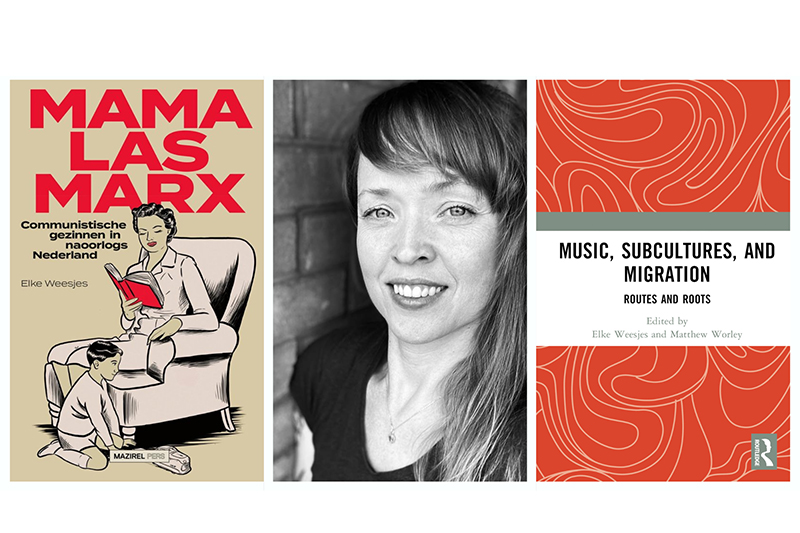KCC Ovations
Sabella's 'Mama las Marx' Named One of Year's Best Books by The Dutch Review of Books

Elke Weesjes Sabella’s 2023 Dutch-language book "Mama las Marx: Communistische Gezinnen in Naoorlogs Nederland" ("Mommy Reads Marx: Communist Families in Post-War Netherlands") was named one of the best books of the year by the influential literary magazine the Dutch Review of Books. The magazine is the Dutch equivalent of the London Review of Books and the New York Review of Books.
Based on interviews with 27 people who grew up in communist households in the Netherlands during the Cold War era, the book explores their day-to-day experiences at home, school, work, and in youth groups. It examines parental war trauma, the process of radicalization, the extent of social isolation, and the development of ideological identity across generations.
After publishing “Growing Up Communist in the Netherlands and Britain” (Amsterdam University Press) in 2021, an academic work comparing Dutch and British communist movements, Sabella was prompted by Dutch trade publisher Walburg Pers to repackage the Dutch portion of her research in an accessible style for a general audience.
The successful book project led her to pursue another oral history, funded by the ACLS/Mellon Foundation, about white supremacist families in the U.S. Deep South, tentatively due out in 2026. "My main goal as an oral historian, author, and educator is to give 'ordinary' people a voice and document their experiences," said Sabella, an adjunct professor of history at Kingsborough Community College and director of the KCC Holocaust Center.
April marks the release of a new book from Routledge Press, "Music, Subcultures, and Migration: Routes and Roots," which she co-edited with Matthew Worley of the University of Reading. The multidisciplinary work examines how music genres like blues, disco, reggae, hip-hop, punk, and metal have evolved and transformed as they traveled time and space.
Drawing on archival sources and oral testimonies from musicians, promoters, critics, and audiences, contributors from across academic fields examine music and subcultural forms in countries spanning Asia, Europe, Oceania, North America, and Africa and analyze how the meaning of music and associated subcultures shifts across contexts and whether they transcend boundaries of class, race, gender, and sexuality.
Sabella also contributed a chapter titled “Jamaican Music in the United States,” which is based on over 30 hours of interviews with legendary Jamaican percussionist Larry McDonald and describes his personal journey from Jamaica to the United States and his experiences in the music industry in both countries. Within this framework, it examines the reception of Jamaican music in the United States, particularly in the African American community, both in terms of audience and among musicians from the early 1970s onwards.
A 30% discount is available with promo code ADC24 through June 30, 2024, by visiting bit.ly/Weesjes-Worley.
